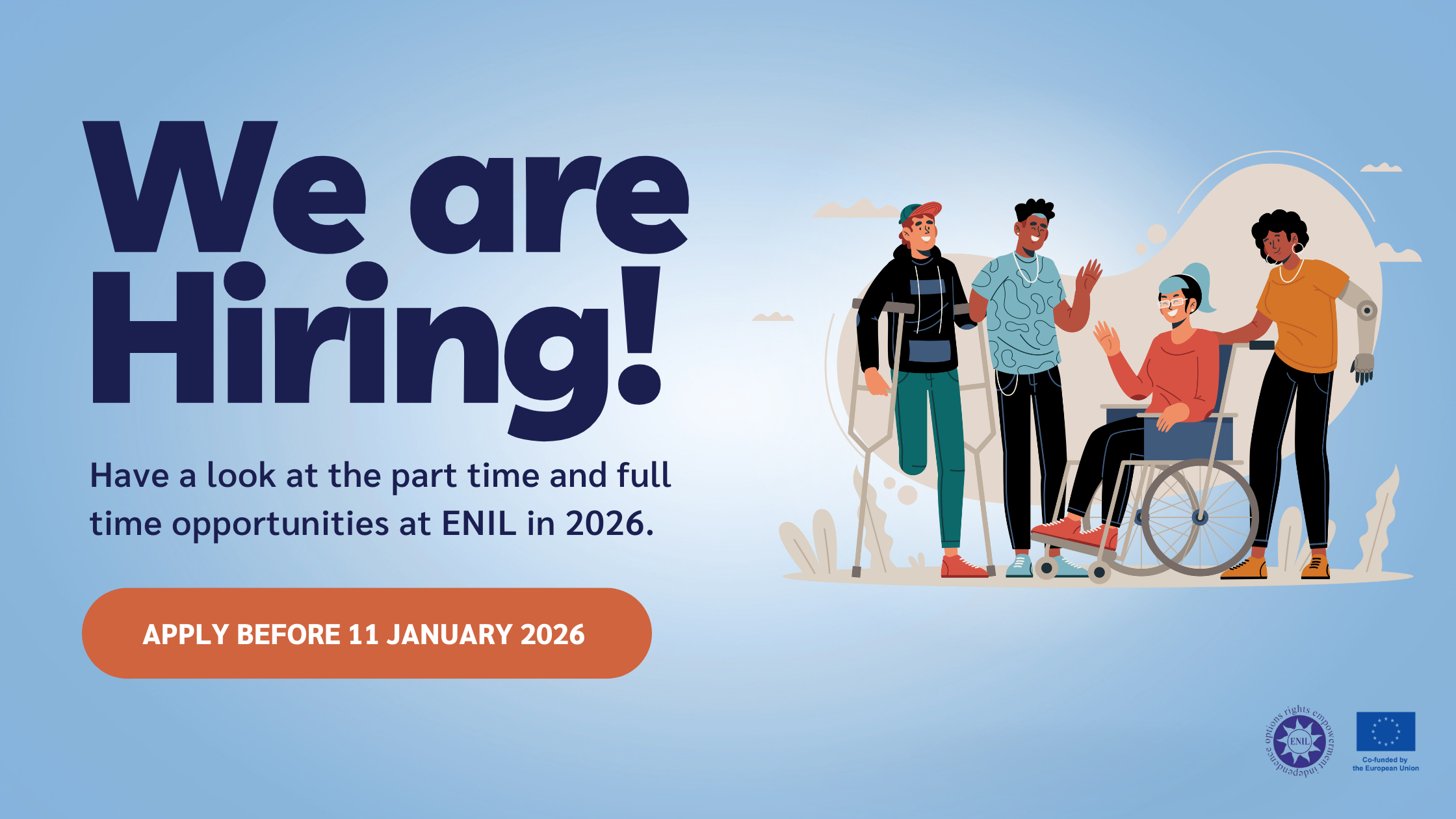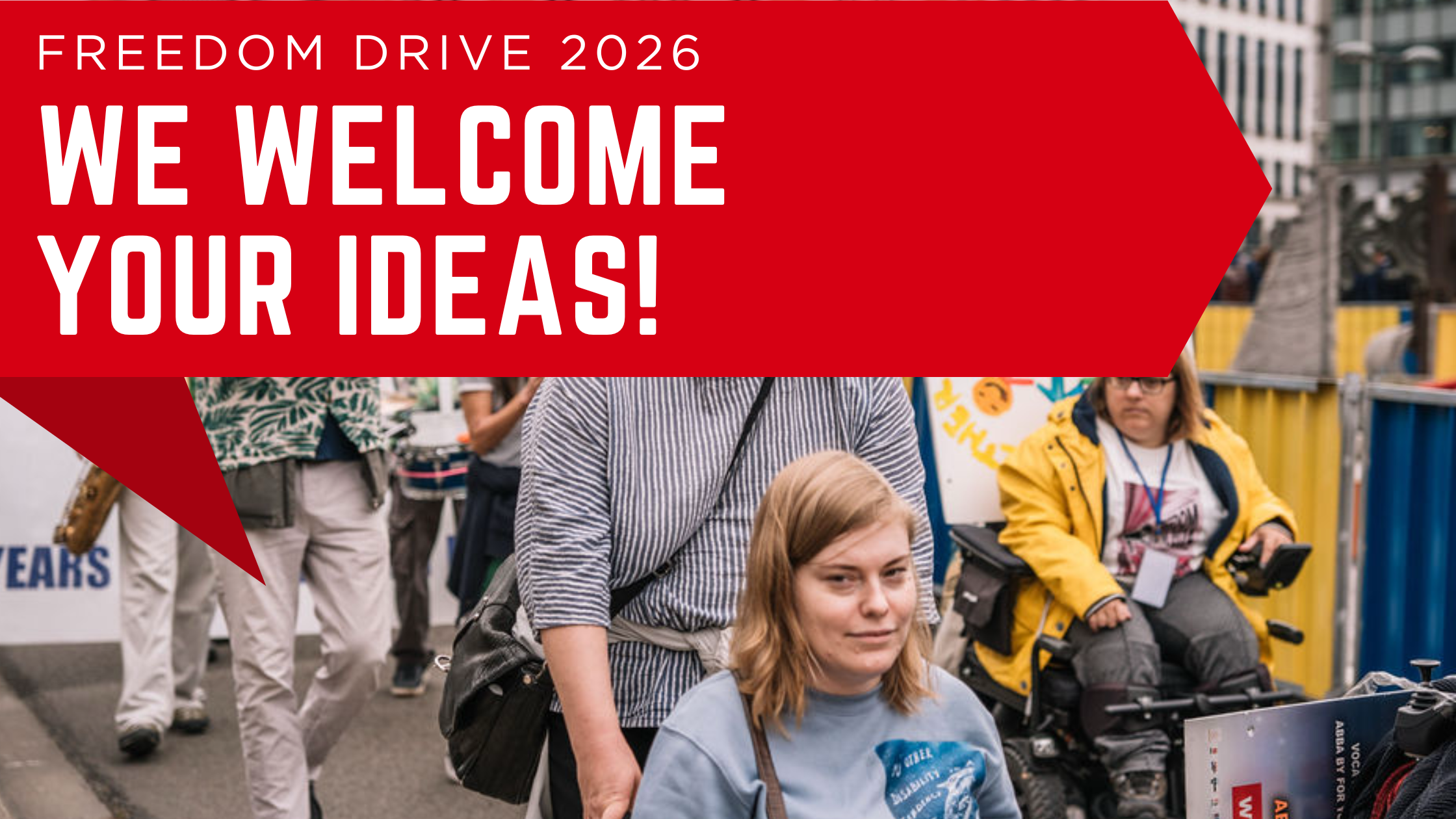Social protection systems are supposed to enable us to live full, independent lives but are ill-equipped to support the disabled. Which changes do we need for social protection that supports independent living?
The European Union advises member states on the design and operation of social protection schemes. To inform this process, the European Commission recently convened a strategic dialogue meeting with civil society organisations, in which ENIL was represented.
What is social protection?
Life is full of risks and challenges. How we are able to meet them strongly depends on our access to wealth which often needs to be generated through income from work. To liberate us from the grinding forces of markets and allow us to achieve our full potential, the state puts in place social protection systems. At the core of social protection are: protection from unemployment, old-age and sickness. To this end, many countries provide, for example, unemployment benefits and labour market reintegration services to the jobless. The performance of social protection related tasks is usually referred to as social services.
Social protection and independent living
In many countries, social protection legislation also regulates the provision of services for disabled people. Whether such services are provided in the form of institutions or community-based support, including personal assistance systems, depends on laws and policies. Thus, any lobby effort to achieve full participation of disabled people in all aspects of society needs to involve social protection.
Social protection and the UNCRPD
Article 28 of the UN Convention on the Rights of Persons with Disabilities (UNCRPD) recognizes the right of disabled people to an “adequate standard of living and social protection”. The article formulates “the right of persons with disabilities to social protection and to the enjoyment of that right without discrimination”. General Comment No. 5 reaffirms the relevance of Art. 28 for the implementation of Art. 19 and calls on state parties to “provide…access to support services” to enable independent living.
Where social protection is failing the disabled
Being disabled can be expensive. In many cases assistive devices, house adaptations or personal assistance are required to live independently and being included in the community. According to the UN Special Rapporteur on disability “catastrophically high health expenditures” are a frequent issue too (Report of the Special Rapporteur, A/70/297, p. 12). These costs can easily drain a disabled persons’ income. Disabled people are significantly less likely to receive a quality education. Due to the lack of education and widespread prejudices, employment rates are 40% lower than for the overall population (ibid, p. 10).
The high costs of being disabled and the restricted access to labour related income push many disabled people into poverty. In some OECD countries, poverty rates among the disabled exceed 30% and are thus drastically higher than for the general population (ibid, p. 9).
Social protection was invented to remedy such problems. Unfortunately, disabled people are often excluded from social protection programs. Where coverage exists, disability specific expenditures are frequently not included. In too many cases, disabled people are discriminated in access to health insurance.
These deficiencies are also recognized by the UN Committee on the Rights of Persons with Disabilities. According to General Comment No. 5, social support and protection schemes are usually inadequate to ensure independent living (paragraph 15, c).
Lobbying for policy change
How should we advise the European Commission to advise EU member states on the creation of disability inclusive social protection systems? Several issues present themselves:
- When it comes to disability, social protection systems are heavily influenced by the medical model of disability. Disabled people are often entitled to benefits designed to preserve their existence on a low level. These schemes can involve restrictions to personal autonomy. Access to regular minimum income schemes, employment services or health insurance is not provided for because disabled people are considered to be “incapable” of participating in society. Social protection needs to be reformed to support the social inclusion of the disabled. To this end, access of disabled people to all parts of the social protection system needs to be codified by law in every country.
- Disability friendly social protection needs to be universal in the sense that access to disabled people to all services is ensured. At the same time, it needs to be specific ,to ensure that disability related costs such as assistive devices, personal assistance or increased medical bills are covered. Different impairments might entail different support needs. Social protection systems need to take into account the diversity of disability.
- The relationship between disability and employment is an important one. We need equal access to education and employment for disabled people. For disabled people who for any reason are unable to find employment or cannot work, social protection systems need to provide disability benefits which serve as income replacement and thus provide an adequate standard of living. At the same time, the additional disability related costs need to be properly funded. Even when in employment, the costs of being disabled are likely to exceed a person´s income. It is therefore important that adequate financial support is provided irrespective of the employment status (or the individual or their household income) and without discrimination on the basis of age, where a person lives or other.
For more information, please contact: Florian Sanden, Policy Coordinator, florian.sanden@enil.eu



